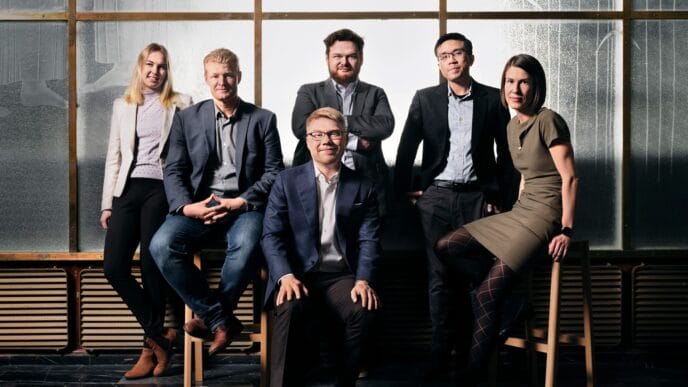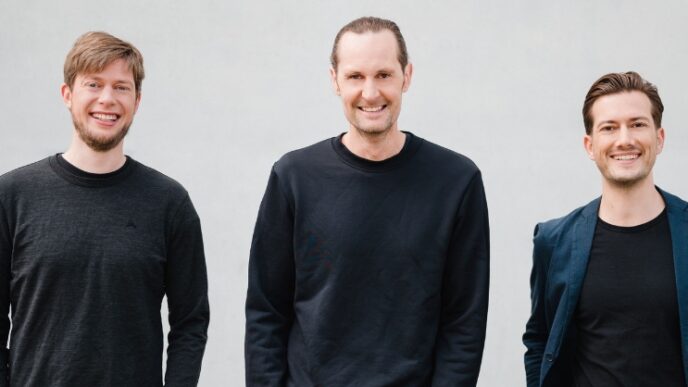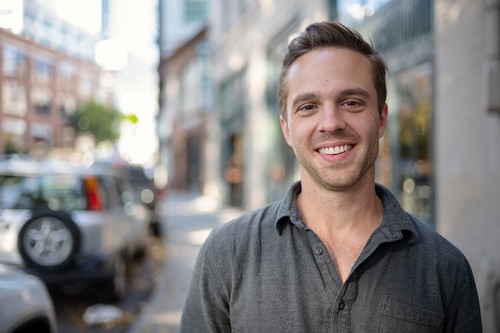Just last week, Portugal’s health tech ambition was on full display at the SIM conference in Porto. With over 3,500 participants, 400+ startups, and 230 investors in attendance, it’s now the country’s second-largest tech event—trailing only the massive Web Summit. But the energy at SIM made one thing clear: Portugal isn’t just riding the tech wave, it’s steering it.
In 2024, Portugal is home to 4,719 startups, up 16% from the previous year. Together, they generate €2.6 billion in revenue, export €1.5 million worth of products and services, and employ more than 26,000 people. Even more telling, two-thirds of these companies were founded in just the last five years. That kind of growth signals something big is happening.
Investors are starting to notice. Sean Seton-Rogers, Partner at PROfounders Capital, compared Portugal to Finland in its early stages. His words carry weight—his firm’s second-ever investment in 2011 was in Finland, and it turned out to be their best one yet.
Early-Stage Resilience Amid Funding Dips
Portugal’s startup ecosystem hasn’t been immune to the global funding crunch. In 2021, investments soared to €1.5 billion—only to plummet to €205 million in 2023. Late-stage deals dried up, and economic uncertainty hit hard.
But there’s a silver lining: early-stage funding remains strong. Seed and Series A rounds have held their ground, keeping the pipeline of new innovation alive. In 2024, funding rebounded to €463 million, led by deals like Powerdot’s €100 million raise. It’s clear: Portugal is learning to scale globally—even with limited local venture capital.
Inês Serrão, Portfolio Manager at Unicorn Factory Lisboa, put it simply: “Founders know Portugal isn’t enough.” From day one, they build with global ambition.
Still, structural funding gaps remain. Much of the money comes from CP—a fiscal incentive involving European funding. Local VCs are few, and most Series B and beyond rounds rely heavily on public co-funding or international capital. Yet momentum is building, and so is investor appetite.
Portugal’s Startup Edge: Lifestyle, Location, and Law
So why is Portugal getting all this attention now? It’s the convergence of several winning factors.
The country offers a 14% tax on stock options, thanks to its Startup Law. Its time zone aligns with the UK, and it’s a short hop from the US. Living costs are low, and the quality of life is high. Plus, technical universities are producing top talent, while international exposure from events like Web Summit keeps Portugal on the radar.
Unicorn Factory Lisboa alone supports more than 300 startups, many led by international founders. For entrepreneurs, Portugal isn’t just a base—it’s a launchpad.
As Body Bloom AI’s co-founder Oksana Kalashnikova puts it, “Despite economic struggles, the country is full of skilled workers, remote professionals, and forward-thinking investors. The startup vibe is real.”
Portugal’s also making strategic bets on the future, creating innovation districts focused on AI, web3, and digital health. The result? A small country with eight unicorns and a growing claim to be Europe’s next frontier for innovation.
Health Tech Is Quietly Taking the Lead
Though IT still dominates Portugal’s tech economy—contributing 63% of startup revenues—health tech is becoming a sector to watch. In 2024, health tech startups make up 8.45% of the ecosystem. That might seem small, but it’s an emerging force in areas like AI diagnostics, telehealth, and digital therapeutics.
Unlike other sectors chasing mega-rounds, health tech thrives on early-stage investment. Sword Health’s €29.2 million round and Biovance Capital’s €51 million biopharma fund show that investors are beginning to take notice.
The key? Collaboration. Programs like HealthTech Lisboa and DigiHealthPT provide clinical testing grounds, while AI-focused partnerships push innovation forward. The result is a tightly-knit ecosystem where startups can pilot, iterate, and grow quickly.
Innovation Isn’t Just in Lisbon or Porto
Lisbon and Porto may lead the pack, but innovation is spreading. In Madeira, Startup Madeira CEO Carlos Soares Lopes notes how startups relocate there for quality of life without sacrificing opportunity. From AI to food tech, smaller regions are flexing their innovation muscle.
In Coimbra, YPO CEO Nirit Harel believes the city is ready to go beyond national significance: “With 40,000 students and low business costs, Coimbra could produce one or two unicorns a year.” The city’s IPN incubator is already ranked among the global top 10.
The goal is decentralisation. Every region—from islands to inland tech hubs—has something unique to offer. And Portugal is betting big on that diversity.
Tackling the Diversity Gap, One Founder at a Time
Portugal is making progress in startup diversity, but challenges remain. In 2023, just 22% of startups had a female founder—slightly above the EU average but still low.
Neide Vieira, co-founder of IPLEXMED, acknowledges the gender gap but remains hopeful: “I may not see full equality in my lifetime, but things are changing. Investors are slowly becoming more open to backing women.”
There’s good reason to be optimistic. Portugal has one of the highest rates of women in science in Europe, at 51%. And government-backed programs, accelerator mandates, and VC attention are all helping nudge the ecosystem toward inclusion.
Startup Portugal’s Executive Director, Antonio Dias Martins, says their programs actively support diversity: “In areas where we have control, we ensure diverse teams and social responsibility.”
Portugal’s Finland Moment?
Finland became a health tech powerhouse by aligning government policy, academia, and private capital. It built digital infrastructure early and developed a culture of collaboration. Portugal is now laying the same groundwork.
Joint events like Smash Iberia bring Finnish and Portuguese startups together, while emerging verticals like AI-powered therapeutics and digital diagnostics mirror Finland’s path. If Portugal keeps this momentum, it could well become Europe’s next health tech breakout.
The question isn’t whether Portugal has potential. It’s whether the ecosystem can stay the course.
Right now, all signs point to yes.













